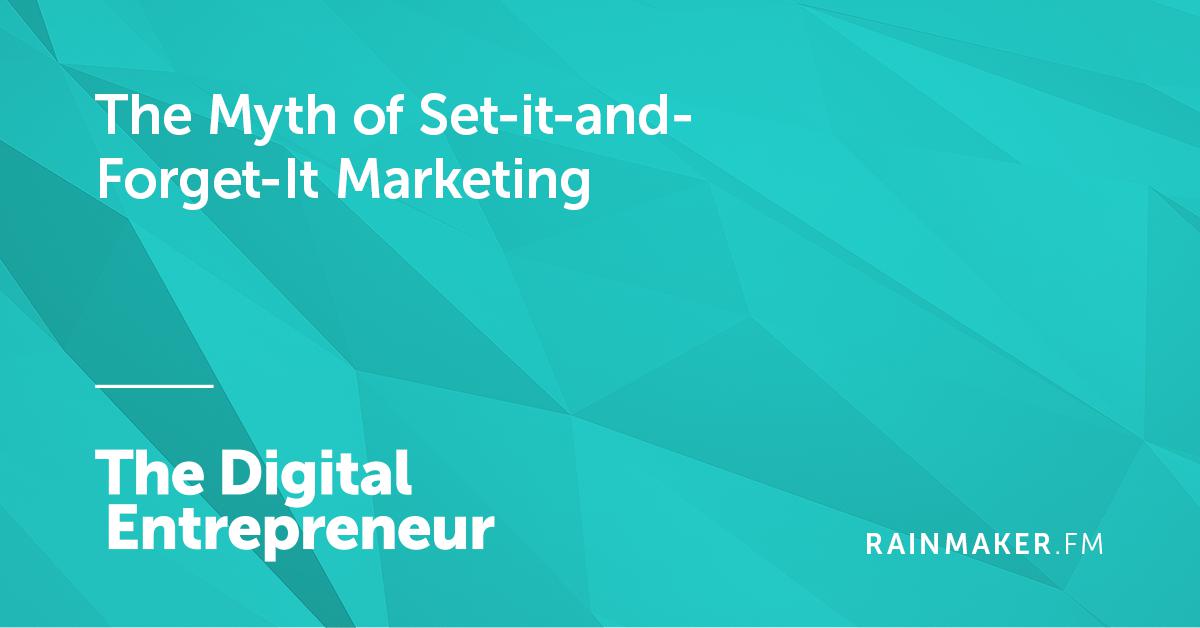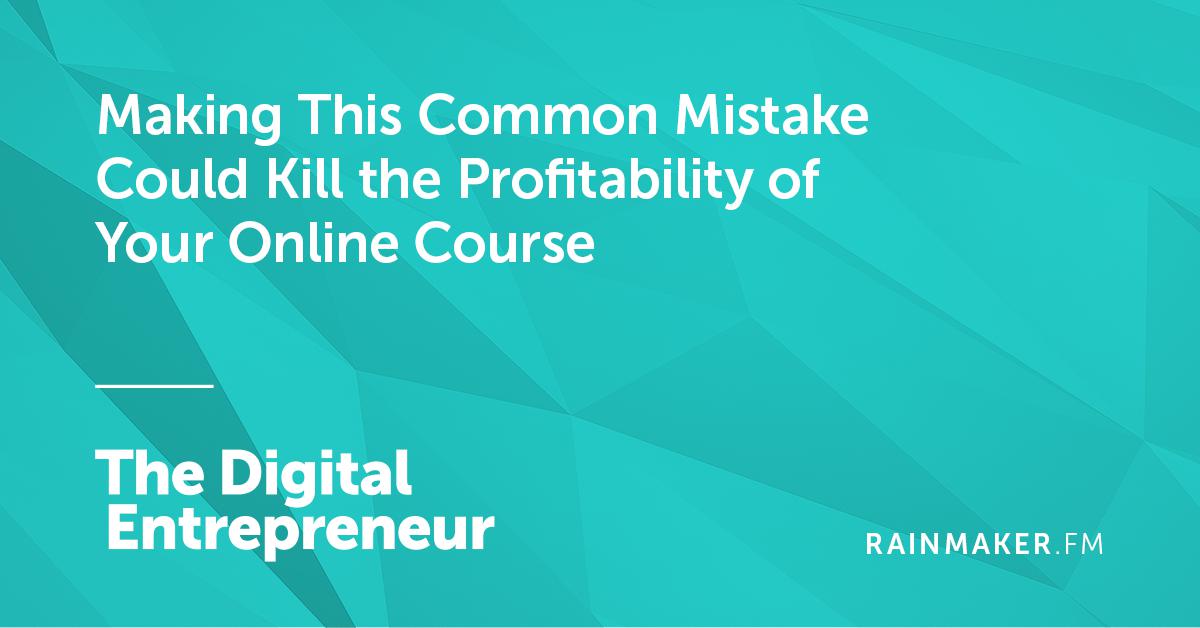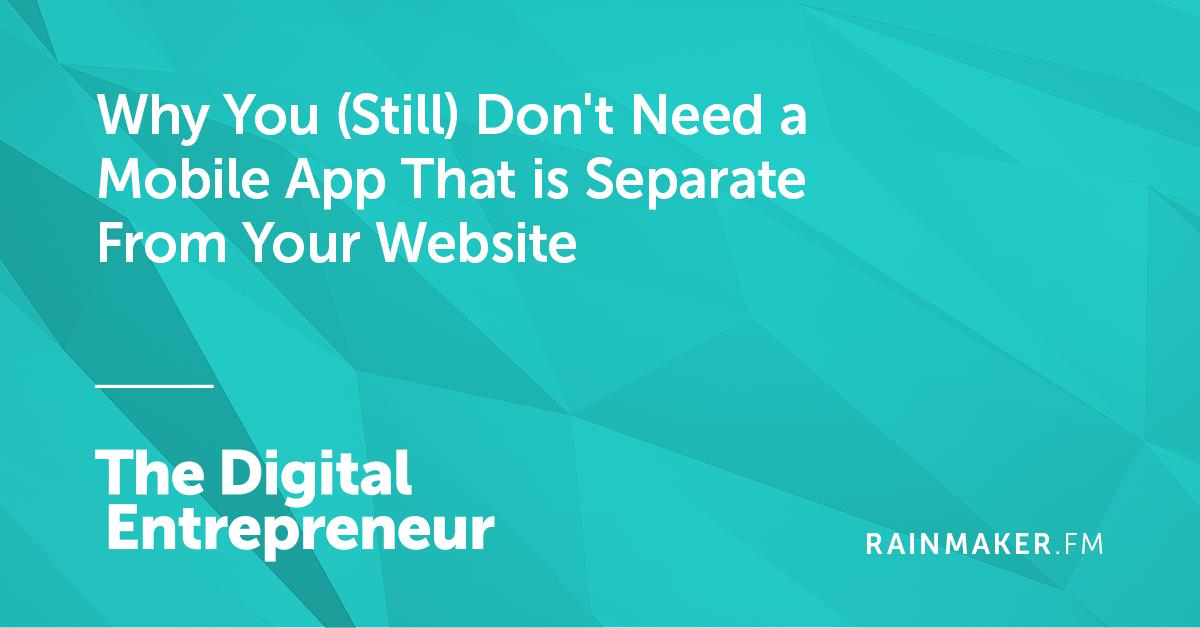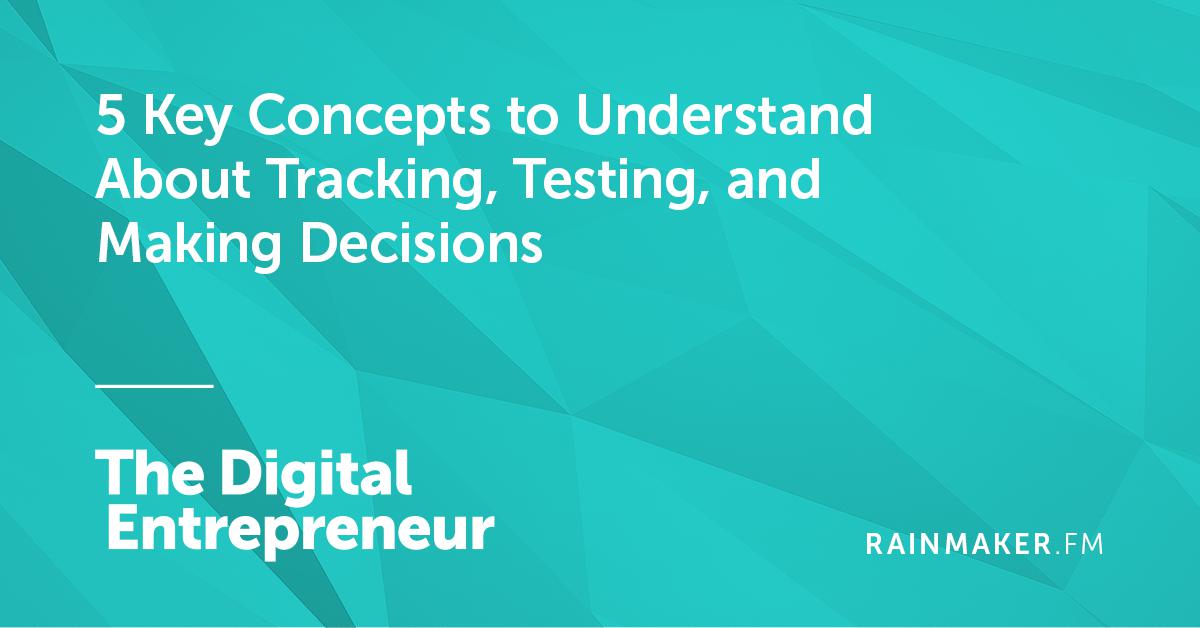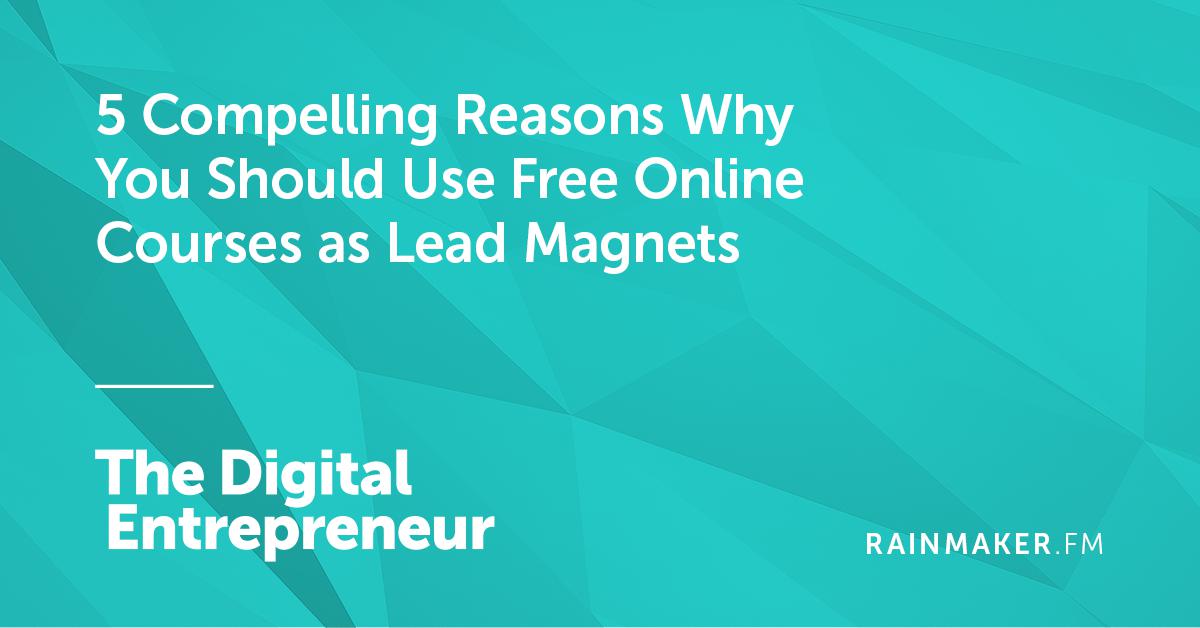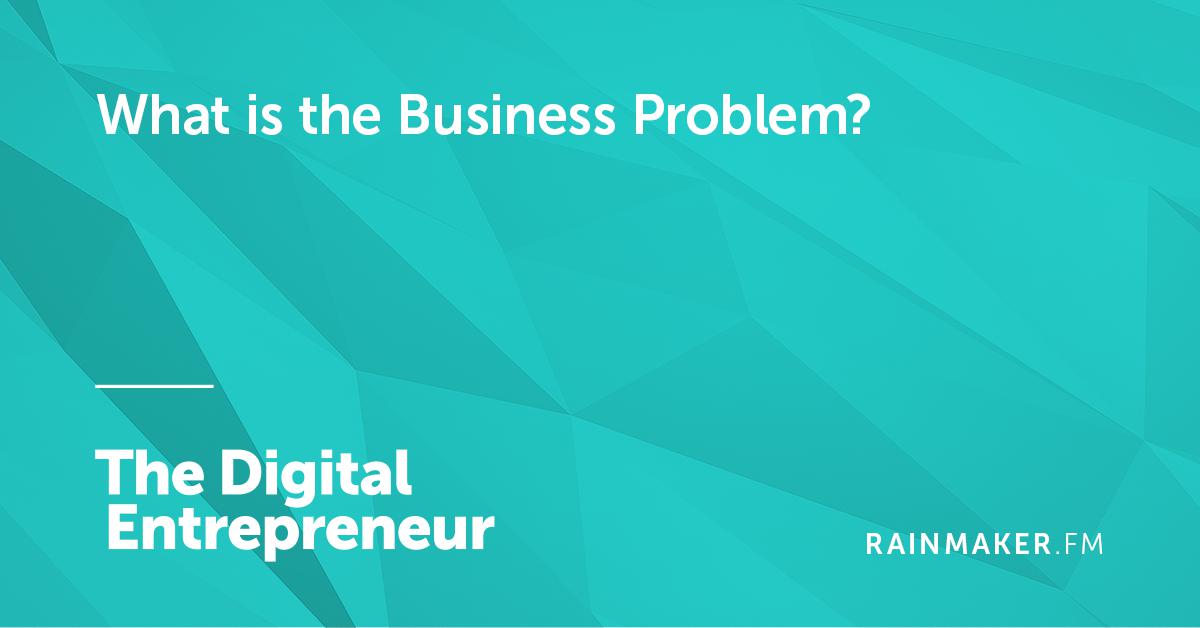
Chris Lema knows plenty about creating successful digital products. He’s been doing it himself, and coaching others on the underlying process, for years. In this episode of The Digital Entrepreneur, we get some insight from Chris on the importance of starting your product development with the problem.
Chris joins us on this episode via an excerpt from a case study webinar he participated in inside of Digital Commerce Academy. The webinar is titled “Chris Lema on Avoiding the Most Common Pitfalls Digital Entrepreneurs Make When Entering the WordPress Premium Marketplace.”
This webinar is not part of the free Academy membership, but you can access it immediately when you upgrade to a paid Academy membership.
The clip you will hear offers general advice to all digital entrepreneurs, not just those looking to create premium plugins or themes for WordPress.
Enjoy …
Listen to The Digital Entrepreneur below …
The Show Notes
- Chris Lema
- Digital Commerce Academy
- Digital Commerce Summit
- Digital Commerce Institute
- Brian Clark
- Jerod Morris
The Transcript
WordPress Product Development: Start with the Business Problem
Voiceover: You’re listening to The Digital Entrepreneur, the show for folks who want to discover smarter ways to create and sell profitable digital goods and services. This podcast is a production of Digital Commerce Institute, the place to be for digital entrepreneurs.
DCI features an in-depth, ongoing instructional academy, plus a live education and networking summit where entrepreneurs from across the globe meet in person. For more information, go to Rainmaker.FM/DigitalCommerce.
Jerod Morris: Welcome back to The Digital Entrepreneur. I’m your host, Jerod Morris, the VP of marketing for Rainmaker Digital. Excited to be talking with you again this week. On this week’s episode, we’re going to talk about, as we often do here on The Digital Entrepreneur, about product creation.
Questions You Need to Be Asking During Product Creation
Jerod Morris: When it comes to creating a product, a digital product, we don’t want to start with the product. We don’t want to start even with a platform. We want to start with a problem. We want to start with a specific problem that we can solve in a specific way for a specific group of people.
Of course, here on The Digital Entrepreneur and over at DigitalCommerce.com, the specific way that we’re going to solve this problem is with a digital good or service. But what kind of digital good or service? For whom? And why? Those are the questions that we need to answer if we want to make a smart choice about what kind of product or service we are going to create and sell.
The Digital Commerce Summit (and Chris’ Role)
Jerod Morris: A guy who has plenty of experience helping people answer these questions is Chris Lema, who blogs daily about product strategy and WordPress at ChrisLema.com. Chris, of course, is also a highly sought-after public speaker, which is why we invited him to speak at Digital Commerce Summit coming up this October.
Digital Commerce Summit, if you don’t know already, is the premier live educational and networking event for people who create and sell digital products and services. I will be speaking at Digital Commerce Summit. Brian will be speaking, and he is currently hard at work, working on the curriculum for Digital Commerce Summit, working with all of the speakers, including Rand Fishkin, who will be there as a keynote, and of course, Chris Lema, as I just mentioned, will be there as well.
As of this episode, going live on May 5, 2016, early bird ticket prices are still available. Go to Rainmaker.FM/Summit to get more information, to get those early bird ticket prices. Then join us in Denver in October to really dive deep into the underlying fundamentals when it comes to creating and selling digital products and services.
Setting the Stage for the Case Study Snippet
Jerod Morris: That’s what we’re going to talk about today on this episode with Chris. Chris is my ‘guest’ on today’s episode of The Digital Entrepreneur, but he’s not actually here. He’s my guest by way of me playing you a snippet from a case study webinar that he and I did together inside of Digital Commerce Academy. This was several weeks ago, but I’ve just been waiting for an opportunity to bring you a snippet from this event. It was a great event. I learned a lot from this event.
This case study, obviously, when you have a free membership to Digital Commerce Academy, you get three case studies included, for free. Just as your free membership when you sign up, you can get those. This is not one of the case studies that is included in the free membership, so you do have to be a full paying member to see it. But it is just yet another reason why Digital Commerce Academy is such a great value.
Chris and I chatted for about an hour about the common mistakes that he sees digital entrepreneurs making when they enter the WordPress premium marketplace. The clip that I’ve pulled out to play for you today, in this episode, is from a section of the webinar in which Chris is explaining the three questions that digital entrepreneurs need to be asking themselves.
The first is, how will you achieve the necessary reach? The second is, who is your target audience?
The third is, what is the business problem?
Chris and I dive into the importance of starting with a business problem. Then we discuss three brilliant examples of companies who have succeeded by solving specific problems in specific ways for specific target markets. It is, as I mentioned, a model that we should all be following as digital entrepreneurs.
Without any further ado, here is my conversation with Chris Lema from inside of Digital Commerce Academy. Here’s a free taste of Digital Commerce Academy for you right here. My conversation with Chris Lema what is the business problem?
One quick word about the audio that you’re about to hear. It is not nearly as clear and crisp as the audio that you are hearing from me right now as you listen to this. The reason for that is we recorded this case study on GoToWebinar. There were slides associated with it as well. Obviously, if you’re inside of Digital Commerce Academy, you get the full effect.
But even though the audio quality isn’t quite as good, the conversation is really, really useful, so I wanted to play it here for you anyway. But just a quick word that it won’t be as clear and crisp as what you’re hearing now, but still plenty good enough to listen to and learn from. Okay. Here’s my conversation with Chris Lema.
What Is the Business Problem? (and Why the Answer Matters So Much)
Jerod Morris: Okay, so we talked about the first two questions. How do you achieve the necessary reach? Who is your target audience? Now, we get to the biggest key here. What is the business problem?
This is the one that can really change some perspectives. You hinted at it before. A big issue in this space is people starting with WordPress, instead of starting with a business problem. If you’re going to succeed with a plugin or a theme, you’ve got to start with the business problem, solve that first, right?
Chris Lema: Absolutely. Everybody starts with WordPress. I can’t tell you the number, even at Crowd Favorite, the number of companies that will come to us and say, “Hey, we have this solution. It worked outside of WordPress, but WordPress is so big. We think we should just come and have you build us something that works in WordPress.”
Or a customer or a prospect of a business will say, “Oh my gosh, I’m so excited because I realized WordPress doesn’t have X,” whatever X is. Like, “Slack doesn’t exist for WordPress, so I’m going to build it for WordPress.” You’re like, “Wait, wait, wait. Stop. You just said that Slack doesn’t exist for WordPress, but you know Slack exists, right?”
“Yeah, but not in WordPress.” “Right, but who cares? Why would someone switch from Slack to a version of Slack in WordPress, simply because it’s on WordPress?” “Well, because all my other WordPress friends would do it.” You’re like, “Right. That’s back to the size of your market at 16, which is the total number of friends that do WordPress. That’s not a market.”
If you want to go after a market, go after a problem that’s not being solved, especially not a problem that’s being solved well by someone else. You have to start with a business problem. When you do, oh, man, you discover there are people out there doing amazing things solving real problems.
It just so happens that, by the time they approach me to talk about how they would do it in WordPress, we’re talking about that business problem and then just using the technology as a way to get them there. WordPress is a very inexpensive and fast way to get to some things, and that’s awesome but you’ve got to start with a business problem.
Jerod Morris: Okay, so let’s walk through a few of those because you’ve got some great examples of these, and let’s start first with this one a barber for black men’s hair.
Example #1: Barber for Black Men’s Hair
Chris Lema: Yeah, oh my god. It was amazing. I do these calls on Clarity, where people can call and pay by the minute to just get advice for their specific problem. I write a lot, but my writing is generic. It’s not to them specifically.
One gentleman said, “Look, I have this business, and this business, for the longest time, has been DVDs. You should see my inventory in my apartment. I have all this pre-cut, pre-made DVDs that I ship to people, but it’s getting more and more expensive. I think that I could probably do this all online.”
Honest to god, I thought, “Oh, he has a couple DVDs, and he’s working with a couple of people. This is kind of cool.” It’s a very niche, very tight market to describe. You’re like, “Look, I only help barbers,” but then, “I only help barbers that work with men.” But then, “I only help barbers that work with men who are black.” So you’re like, “Wow. You have taken everything I’ve ever said about niche work, and you’ve applied it.”
So I said, “Well, okay, so you want to build a membership site with video tutorials for these barbers?” He’s like, “Exactly.” What got my jaw to drop was the dude makes over a million dollars a year. I’m like, “Ah, all my life choices were wrong,” in that moment because I’m like, “Why am I not doing this? This is amazing.”
It’s one thing to write about membership sites. It’s another to run one that’s generating a million dollars a year with a set of videos. Yeah, he’s doing other work. He’s writing articles, et cetera. You’re like, “That’s amazing!” But he’s solving a very specific problem. If you want to be a barber and all of a sudden, you’re cutting hair, you have to understand the nuances of that, and you don’t know it are you going to spend a little bit of money to go learn it?
Of course you are. Every single day of the week that’s not a question. He’s solving a business problem first. WordPress just happens to be the vehicle he’s using to get there.
Example #2: Vocal Enhancements for Broadway
Jerod Morris: Yeah. All right, and another one that you talked about was this guy who teaches vocal lessons or helps people with vocal enhancements, only for people who are getting ready to audition for Broadway shows.
Chris Lema: Exactly. Another person who’s making a ridiculous amount of money and has a very niche, vertical space. He just says, “Look. I’m a voice coach.” You’re like, “Yeah, but there’s a lot of voice coaches.” You’re like, “Yeah, but I’m a voice coach specifically with an online presence and online program.” You’re like, “Yeah, I get that.”
“Well, my target audience is only here in New York, and it’s for people who are auditioning on Broadway. They’re able to be actors. They’re great at acting. They’re not hitting the notes. If they’re not hitting the notes, they need very specific help. I’m giving that to them. I built a WordPress site, and I have the ability to let them even record themselves and upload the video. I review it and send them back notes.”
You’re like, “That’s brilliant.” Again, you hear how much money they’re making, and you’re like, “I should really stop advising these people and just do this.”
Remember, you have to be an expert in a particular space. You know that problem, and you know how to hit that problem. You know all the messaging for that. You know your segments. You know everything else. These are the people that should go into the space, not just a casual whim of, “Oh, I think I’d like to build this in WordPress.” You really have to be able to solve a business problem.
Example #3: Wine Membership and Festival
Chris Lema: Another example is the one that I told you about wine. They have done something really interesting, where the reality is that people want to buy wine, and people also want to go to this special wine event. What they did is took two disconnected variables–people who want to go to one, people who want to go to the other–and they combined them.
This is akin to when there was the creation of the three-point line in basketball. You’re like, “Look, I’m going to take an arbitrary variable, like the distance to the net, and I’m going to now declare that, if you’re behind this distance, you get more points. I’m going to take a second variable, which is the point total, and I’m going to combine the two. When I combine the two, I now can create something brand new and different.”
That’s what these guys did in New York. They basically said, “We know that people want to go to the festival, so what we’re going to do is make them join our membership club, which allows us to ship them wine every month, which we know they probably were going to buy anyway–but not everyone would. This way, we’re shipping wine every month to these people. We’re making money off that. Then, that’s the only way they get the gold ticket to come to the event. If you really want the event, you’ll also end up buying wine from us.”
You’re like, “Ah, that’s brilliant.” Again, they’re solving a problem first about wine and about their market. They’re solving it in an innovative way. They didn’t start with WordPress.
Helping Others Connect Two Disconnected Variables with the Right Messaging
Jerod Morris: Do you often spend time with the people that you’re consulting with and these digital entrepreneurs that you’re talking with, working with them on this, on this idea of taking two variables that are disconnected and connecting them? It’s such an interesting way to think. It can lead to such unique solutions.
Chris Lema: I do, for the ones that want additional work. We just launched a site for folks who are looking for this space of upgrading to first class. I spent about a year working with them, not just on the technology behind this launch, but also on how to think about the program.
We created some interesting dynamics where we combined both what level you bought in at and what kind of advice, tricks, and historical insights you could have access to. We were shifting things based on what you were buying. Even though everyone’s buying the same value proposition, you’re solving the same core problem, it becomes really compelling.
More important than anything, as an upsell when you combine those things, it’s a really nice upsell because people are like, “All I have to do is pay a little bit more and now I get X, which I didn’t have access to before?” It’s an easy trigger to pull if you’ve understood your segment, if you’ve put the right messaging together.
Jerod Morris: All right. Well I hope you enjoyed that brief snippet of my conversation with Chris Lema. The rest of the 50-plus minutes is just as good, if not better than that.
How to Take Your Digital Business to the Next Level
Jerod Morris: If you want to get the full conversation with Chris, go to Rainmaker.FM/DigitalCommerce. That page will allow you to activate your free membership.
As I said, the case study with Chris Lema is not included in the free membership, but the instructions to upgrade your Academy membership to the paid membership will be right there after you join as a free member.
Again, go to Rainmaker.FM/DigitalCommerce. That will allow you to get your free membership started. Then you can upgrade, and you can get Chris Lema’s case study, plus all of the other great content that is inside Digital Commerce Academy, where we have case studies, cutting edge webinars, and regular coaching Q&As, the community.
Just with your free membership alone, you get access to three case studies, as well as lessons from Brian Clark’s course on building your online training business the smart way, as well as Chris and Tony’s course on marketing automation and marketing funnels. So much goodness inside of Digital Commerce Academy. We hope that you will join us inside. Rainmaker.FM/DigitalCommerce.
Again, if you’re free in October, the 13th and 14th, we hope that you will join us at Digital Commerce Summit. For more information on the Summit, go to Rainmaker.FM/Summit.
All right, everybody. Thank you for joining me on this episode of The Digital Entrepreneur. Join us next week. Brian Clark will be back. We have a special new episode for you. We will talk to you then.
